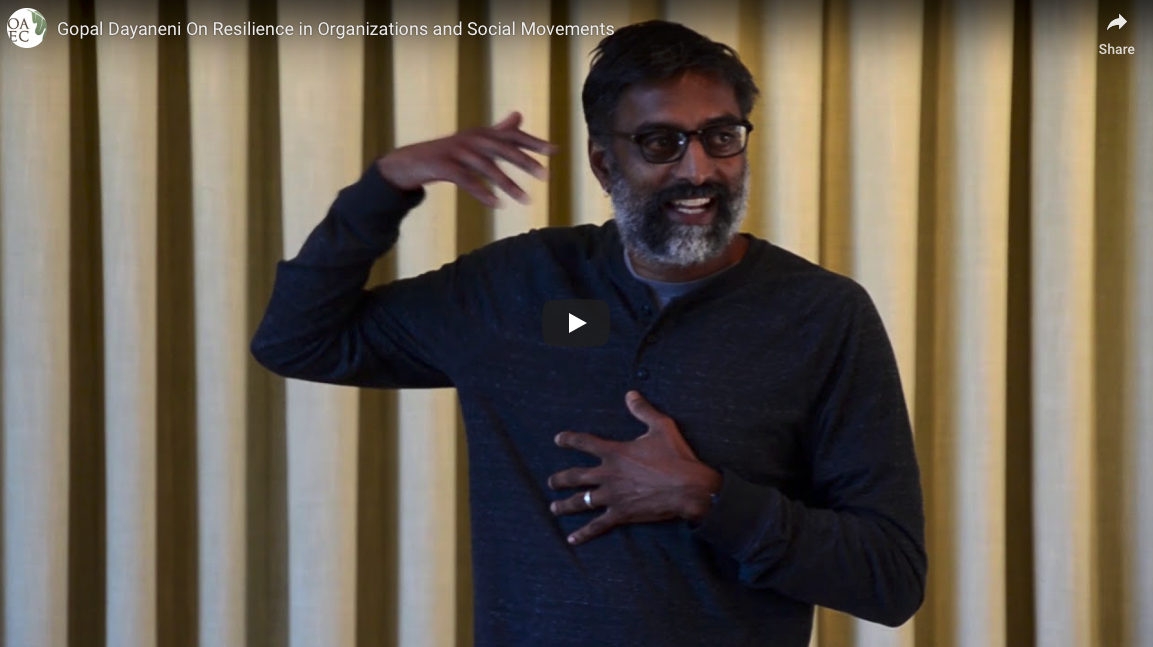Resilience is a concept that we at OAEC think about a lot, even now as this “viral”, often co-opted term has taken on so many different interpretations. Nature’s resiliency mechanisms inspire us in the design of our physical environment as well as socio-cultural systems for the long haul – this principal is at the core of OAEC’s Resilient Community Design framework.
We are blessed to have an incredible Board of Directors (see their bios here) who have helped guide our thinking about resilience. Gopal Dayaneni and Melissa Nelson gave these talks in the new meeting hall at OAEC to an audience of food system activists and philanthropists last fall. We invite you to watch and be inspired!

Gopal Dayaneni, OAEC Board of Directors and Co-Founding Member of the Movement Generation Collective discusses resilience strategy as it relates to social movements and organizations. He challenges us to consider: What is the identity or the central character, role or value of an organization/group that is wanting to be preserved or made resilient? What are the core, essential functions of a group and how can we strengthen that core function in ways that mimic nature’s resiliency mechanisms? How can our organizations be more resistant? More redundant? More diverse? More complex? More interconnected?
››

Melissa Nelson, OAEC Board of Directors and Executive Director of The Cultural Conservancy discusses the Resilience of Indigeneity and the lessons of regeneration that can be learned from the indigenous worldview. She begins by urging all of us to acknowledge the indigenous sovereignty of the land we are standing on and the living descendants of First Peoples as a matter or protocol and good manners wherever we go. Indigenous cultural values reframe the identity of the “self” towards a collective, ecological, and cosmological identity that is rooted in the landscape. The idea that humans are part of an infinitely complex and abundant ecological family that is so much larger than any individual has made indigenous people resilient in the face of historical injustice, forced migration, and attempted genocide. Melissa points to language diversity, oral history, ceremony, and methods of agriculture as tried-and-true sources of strength for indigenous people and that listening to the land itself is perhaps the deepest wellspring of regeneration and renewal that we can all learn from, whoever and wherever we are.






